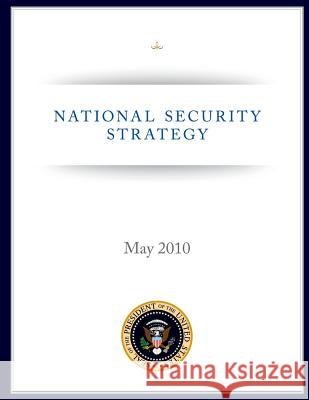National Security Strategy: May 2010 » książka
National Security Strategy: May 2010
ISBN-13: 9781481241557 / Angielski / Miękka / 2012 / 62 str.
At the dawn of the 21st century, the United States of America faces a broad and complex array of chal-lenges to our national security. Just as America helped to determine the course of the 20th century, we must now build the sources of American strength and influence, and shape an international order capable of overcoming the challenges of the 21st century. To succeed, we must face the world as it is. The two decades since the end of the Cold War have been marked by both the promise and perils of change. The circle of peaceful democracies has expanded; the specter of nuclear war has lifted; major powers are at peace; the global economy has grown; commerce has stitched the fate of nations together; and more individuals can determine their own destiny. Yet these advances have been accompanied by persistent problems. Wars over ideology have given way to wars over religious, ethnic, and tribal identity; nuclear dangers have proliferated; inequality and economic instability have intensified; damage to our environment, food insecurity, and dangers to public health are increasingly shared; and the same tools that empower individuals to build enable them to destroy. The dark side of this globalized world came to the forefront for the American people on September 11, 2001. The immediate threat demonstrated by the deadliest attacks ever launched upon American soil demanded strong and durable approaches to defend our homeland. In the years since, we have launched a war against al-Qa'ida and its affiliates, decided to fight a war in Iraq, and confronted a sweep-ing economic crisis. More broadly, though, we have wrestled with how to advance American interests in a world that has changed-a world in which the international architecture of the 20th century is buckling under the weight of new threats, the global economy has accelerated the competition facing our people and businesses, and the universal aspiration for freedom and dignity contends with new obstacles. Our country possesses the attributes that have supported our leadership for decades-sturdy alliances, an unmatched military, the world's largest economy, a strong and evolving democracy, and a dynamic citizenry. Going forward, there should be no doubt: the United States of America will continue to underwrite global security-through our commitments to allies, partners, and institutions; our focus on defeating al-Qa'ida and its affiliates in Afghanistan, Pakistan, and around the globe; and our determina-tion to deter aggression and prevent the proliferation of the world's most dangerous weapons. As we do, we must recognize that no one nation-no matter how powerful-can meet global challenges alone. As we did after World War II, America must prepare for the future, while forging cooperative approaches among nations that can yield results. Our national security strategy is, therefore, focused on renewing American leadership so that we can more effectively advance our interests in the 21st century. We will do so by building upon the sources of our strength at home, while shaping an international order that can meet the challenges of our time. This strategy recognizes the fundamental connection between our national security, our national competitiveness, resilience, and moral example. And it reaffirms America's commitment to pursue our interests through an international system in which all nations have certain rights and responsibilities. This will allow America to leverage our engagement abroad on behalf of a world in which individuals enjoy more freedom and opportunity, and nations have incentives to act responsibly, while facing consequences when they do not."
Zawartość książki może nie spełniać oczekiwań – reklamacje nie obejmują treści, która mogła nie być redakcyjnie ani merytorycznie opracowana.











